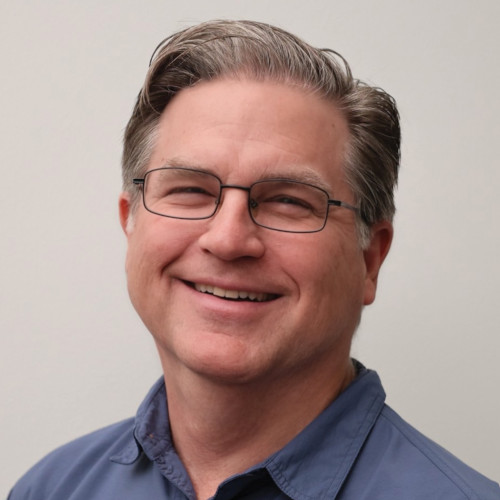Dr. Greg Kiker
Professor, Ecological Modeling and Management
The focus of Greg Kiker's career is the ecological modeling and management of natural systems. Kiker’s work has taken him from Florida’s rivers and coasts, to critical infrastructure in Texas, to the savannas of Africa where he studied the management of elephants in Kruger National Park. These environments may seem worlds apart, but Dr. Kiker's research has shown that they share a common thread: the need for effective management of valued resources in uncertain environments.
Management means making decisions, acting on those decisions, and achieving results. Kiker is interested in every aspect of this process. He collects and analyzes data from natural systems. He develops options for decision-makers and explains the consequences. He has studied the decision-making process itself extensively. As a final touch, he studies the uncertainty in every stage of the process, beginning with the accuracy of the original data.
Kiker is especially interested in so-called "wicked problems." First identified in the late 1960s, wicked problems have many factors and high-stakes solutions, full of economic and political implications --- often with time limits. Over the years, Kiker has developed the skills and analytical tools to tackle tough problems as the scale and complexity of his projects has steadily grown.
Kruger National Park managers must confront daily the numerous issues facing their elephants while thinking ahead to upcoming seasons. To help park managers, Kiker developed a computer program called QnD:EleSim, which stands for Questions and Decisions -- Elephant Simulation. Kiker used this computer software to develop a model of the Kruger National Park, creating a game that managers can play. Despite the word "game", the inner workings of QnD:EleSim are very sophisticated and give managers a user-friendly way of manipulating a great deal of data with very advanced simulation and decision tools.
Throughout his career, Kiker has demonstrated a commitment to addressing pressing issues in environmental management, including the Florida-Georgia dispute over the Apalachicola-Chattahoochee-Flint Rivers (ACF) which supplies water in northwestern Florida and is critical to the Florida oyster industry in Apalachicola Bay. He has also worked on water management in southwest Florida that affects both the Everglades and Florida's extensive cattle industry. Kiker has worked with several other ABE faculty to develop management strategies for Tampa Bay Water, the authority that grew out of the Florida West Coast's own water wars.
To each of these, Kiker has brought the full range of his understanding of problems -- wicked and otherwise. Water-related issues are slow-moving crises. They develop over a long period of time and provoke lengthy discussions and negotiations. In the meantime, the situation continues to change, often for the worse. This is the kind of challenge Kiker wants to help manage. He describes a process of adaptive management based on improving the communication between all parties involved and increasing their understanding of what drives the problem.

Contact Information
352-392-1864
Office:
120A Frazier Rogers Hall
Mailing Address:
P.O. Box 110570
Gainesville, FL 32611-0570
-
Teaching
- AOM4643/6932: Principles and Issues in Environmental Hydrology
- ABE5643C: Biological Systems Simulation
-
Research
Departmental Research Area:
- Biological Engineering
Research Focus:
- Ecosystem and Hydrological Modeling for South Florida and Southern African Ecosystems
- Simulation of Beef Cattle Farming Systems for Ecological and Enterprise Sustainability
- Food/Ecology/Marine System Integration into Decision Support and Scenario Analysis Systems for the Caribbean Region
- Adaptive Management Tools for Making Decisions with Uncertain Information
- Decision Support and Analysis for Sediment/Dredging Management and Ecosystem Restoration
-
Education
- Ph.D. Agricultural and Biological Engineering, Cornell University, 1998
- M.S. Agricultural and Biological Engineering, University of Florida, 1992
- B.S. Agricultural and Biological Engineering, University of Florida, 1990
-
Professional Experience
- 2018 - Present
Professor and Graduate Coordinator, Agricultural and Biological Engineering Department, University of Florida - 2014 - 2018
Associate Professor and Graduate Coordinator, Agricultural and Biological Engineering Department, University of Florida - 2011 - 2014
Associate Professor, Agricultural and Biological Engineering Department, University of Florida - 2005 - 2011
Assistant Professor, Agricultural and Biological Engineering Department, University of Florida - 2002 - 2005
Research Physical Scientist, U.S. Army Corps of Engineers - Engineer Research and Development Center – Environmental Laboratory, Waterways Experiment Station, Vicksburg, MS - 1998 - 2002
Senior Lecturer, School of Bioresources Engineering and Environmental Hydrology, University of KwaZulu-Natal, Pietermaritzburg, South Africa
- 2018 - Present
- Publications
-
Awards and Honors
- UF/IFAS International Achievement Award, 2011
- IFAS Junior International Education Award, 2009
- Best Paper, Integrated Category, Journal Human and Ecological Risk Assessment (HERA), 2008
- ‘Internationalizing the Curriculum’ Award, University of Florida International Center, 2006
- Fulbright Scholar, Climate Change Research in South Africa, U.S. Department of State, 1992-1993
- The Land Fellowship Program, The Land, EPCOT Center, Walt Disney World Co., 1990 – 1991
- Robert E. Stewart Engineering-Humanities Award, American Society of Agricultural Engineers, 1988
-
Other Professional Activities
- American Society of Agricultural and Biological Engineers
- Society for Risk Analysis
- Ecological Society of America
